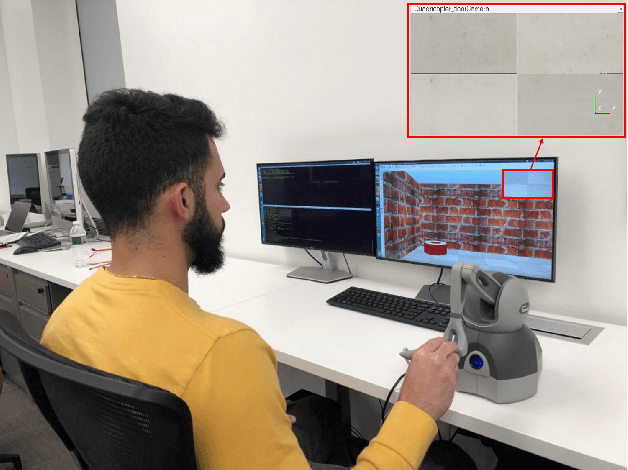Haptic Teleoperation of UAVs through Control Barrier Functions
Paper and Code
Nov 08, 2019



This paper presents a novel approach to haptic teleoperation. Specifically, we use control barrier functions (CBFs) to generate force feedback to help human operators safely fly quadrotor UAVs. CBFs take a control signal as input and output a control signal that is as close as possible to the initial control signal, while also meeting specified safety constraints. In the proposed method, we generate haptic force feedback based on the difference between a command issued by the human operator and the safe command returned by a CBF. In this way, if the user issues an unsafe control command, the haptic feedback will help guide the user towards the safe input command that is closest to their current command. We conducted a within-subject user study, in which 12 participants flew a simulated UAV in a virtual hallway environment. Participants completed the task with our proposed CBF-based haptic feedback, no haptic feedback, and haptic feedback generated via parametric risk fields, which is a state-of-the-art method described in the literature. The results of this study show that CBF-based haptic feedback can improve a human operator's ability to safely fly a UAV and reduce the operator's perceived workload, without sacrificing task efficiency.
 Add to Chrome
Add to Chrome Add to Firefox
Add to Firefox Add to Edge
Add to Edge